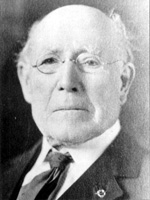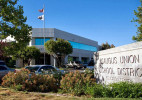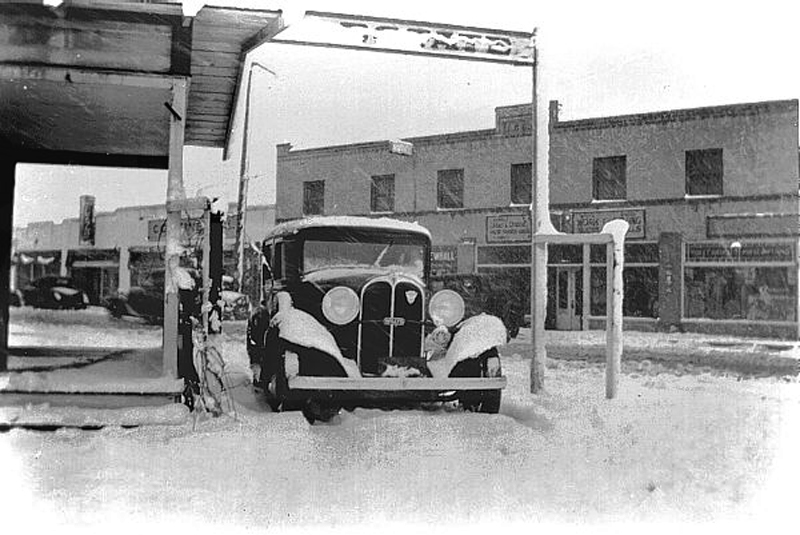[LACo Public Health] – According to the South Coast Air Quality Management District smoke from the fire in Santa Clarita Valley has caused poor air quality that affects all individuals in Santa Clarita Valley and surrounding areas. The Los Angeles County Interim Health Officer, Dr. Jeffrey Gunzenhauser, urges all individuals in these areas, or areas where there is visible smoke or the odor of smoke, to avoid unnecessary outdoor exposure and to limit physical exertion (whether indoor or outdoor), such as exercise.

Crews are still working to contain the Calgrove fire Thursday. Photo: LACo Fire
“We are also advising schools that are in session in smoke-impacted areas to suspend outside physical activities in these areas, including physical education and after-school sports, until conditions improve,” said Jeffrey Gunzenhauser, MD, MPH. “Non-school related sports organizations for children and adults are advised to cancel outdoor practices and competitions in areas where there is visible smoke, soot, or ash, or where there is an odor of smoke. This also applies to other recreational outdoor activity, such as hikes or picnics, in these areas.”
Throughout Los Angeles County, especially Santa Clarita Valley and surrounding areas, sensitive individuals, such as those with heart disease, asthma or other respiratory disease, should follow these recommendations and stay indoors as much as possible even in areas where smoke, soot, or ash cannot be seen or there is no odor of smoke.
“It is difficult to tell where ash or soot from a fire will go, or how winds will affect the level of dust particles in the air, so we ask all individuals to be aware of their immediate environment and to take actions to safeguard their health,” said Dr. Gunzenhauser.
People can participate in indoor sports or other strenuous activity in areas with visible smoke, soot, or ash, provided the indoor location has air conditioning that does not draw air from the outside and it has closed windows and doors to protect the cleanliness of indoor air. If not, it is recommended that all individuals follow these guidelines as if they were outside.
The following recommendations will help you protect yourself and your family from harmful effects of bad air quality:
* If you see or smell smoke, or see a lot of particles and ash in the air, avoid unnecessary outdoor activity to limit your exposure to harmful air. This is especially important for those with heart or lung disease (including asthma), the elderly and children.
* If outdoor air is bad, try to keep indoor air as clean as possible by keeping windows and doors closed. Air conditioners that re-circulate air within the home can help filter out harmful particles.
* Avoid using air conditioning units that only draw in air from the outside or that do not have a re-circulating option. Residents should check the filters on their air conditioners and replace them regularly. Indoor air filtration devices with HEPA filters can further reduce the level of particles that circulate indoors.
* If it is too hot during the day to keep the doors or windows closed and you do not have an air conditioning unit that re-circulates indoor air, consider going to an air conditioned public place, such as a library or shopping center, to stay cool and to protect yourself from harmful air.
* Do not use fireplaces (either wood burning or gas), candles, and vacuums. Use damp cloths to clean dusty indoor surfaces. Do not smoke.
* If you have symptoms of lung or heart disease that may be related to smoke exposure, including severe coughing, shortness of breath or difficulty breathing, wheezing, chest tightness or pain, palpitations, nausea or unusual fatigue or lightheadedness, contact your doctor immediately or go to an urgent care center.
* When smoke is heavy for a prolonged period of time, fine particles can build up indoors even though you may not be able to see them. Wearing a mask may prevent exposures to large particles. However, most masks do not prevent exposure to fine particles and toxic gases, which may be more dangerous to your health.
The following is recommended for pets:
* Avoid leaving your pets outdoors, particularly at night. Pets should be brought into an indoor location, such as an enclosed garage or a house.
* If dogs or cats appear to be in respiratory distress, they should be taken to an animal hospital immediately. Symptoms of respiratory distress for dogs include panting and/or an inability to catch their breath. Symptoms for cats are less noticeable, but may include panting and/or an inability to catch their breath.
The Department of Public Health is committed to protecting and improving the health of the nearly 10 million residents of Los Angeles County. Through a variety of programs, community partnerships and services, Public Health oversees environmental health, disease control, and community and family health. Public Health comprises nearly 4,000 employees and has an annual budget exceeding $900 million. To learn more about Public Health and the work we do please visit http://www.publichealth.lacounty.gov.
Like this:
Like Loading...
Related




 Tweet This
Tweet This Facebook
Facebook Digg This
Digg This Bookmark
Bookmark Stumble
Stumble RSS
RSS



























REAL NAMES ONLY: All posters must use their real individual or business name. This applies equally to Twitter account holders who use a nickname.
4 Comments
Lisa Peters Beckwith no walking
too late i did yesterday and I am going today.. thanks tho .. on a mission !!
My prayer to the inmates!
Walked 5 miles that day